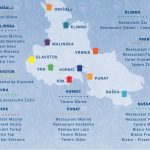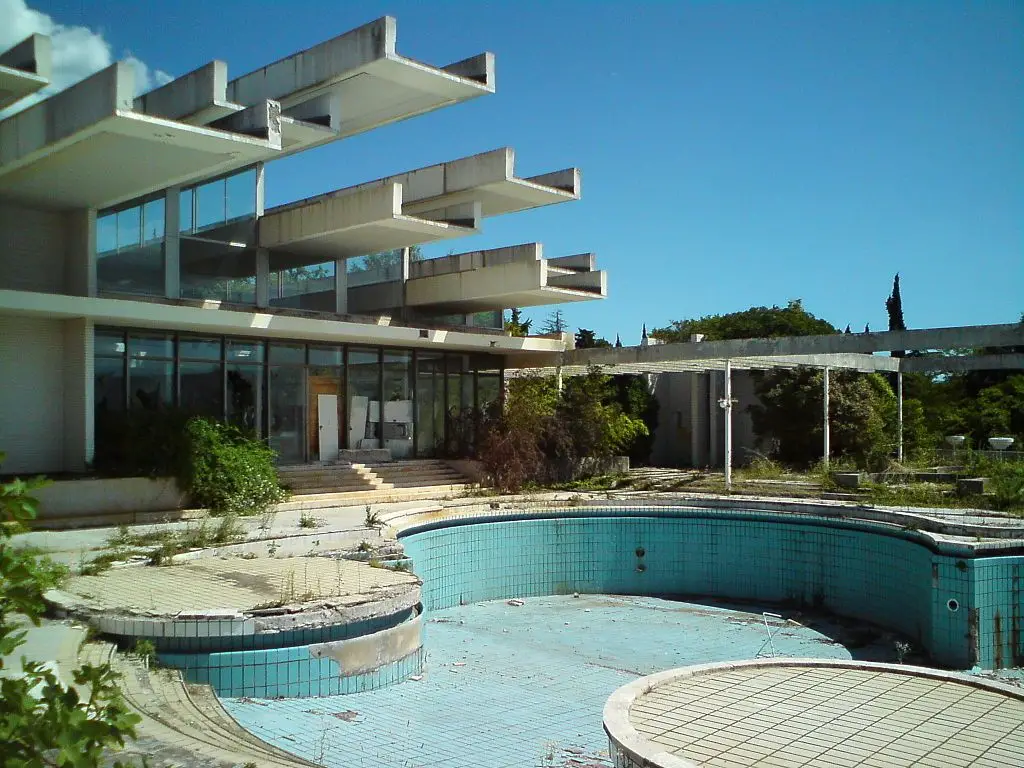
As the party culture of the Croatian coast keeps making international headlines, we decided to look back on the original pioneer of hedonism on the Adriatic, the Hotel Palace Haludovo.
A lot has been written about the tourist debauchery on certain Croatian islands in recent weeks. Drinking in public, improper behaviour, lackluster morals. Previously known as prestigious cultural sites, places like Hvar are now decisively working on restoring their image to its former glory, after being dubbed as party destinations.
Partying? Excuse me, you have no idea what heavy partying really looks like.
Meet Hotel Haludovo on Krk island, the original palace of sin. It often gets called the most extravagant resort on the Adriatic, but you wouldn’t be wrong to expand those parameters to the wider region of the Balkans. Never has there been such a lavish, opulent, purposely-built mecca for tourists looking to have a good time – not before, and in spite of all hotels built on the coast in the last couple of years, certainly not since.
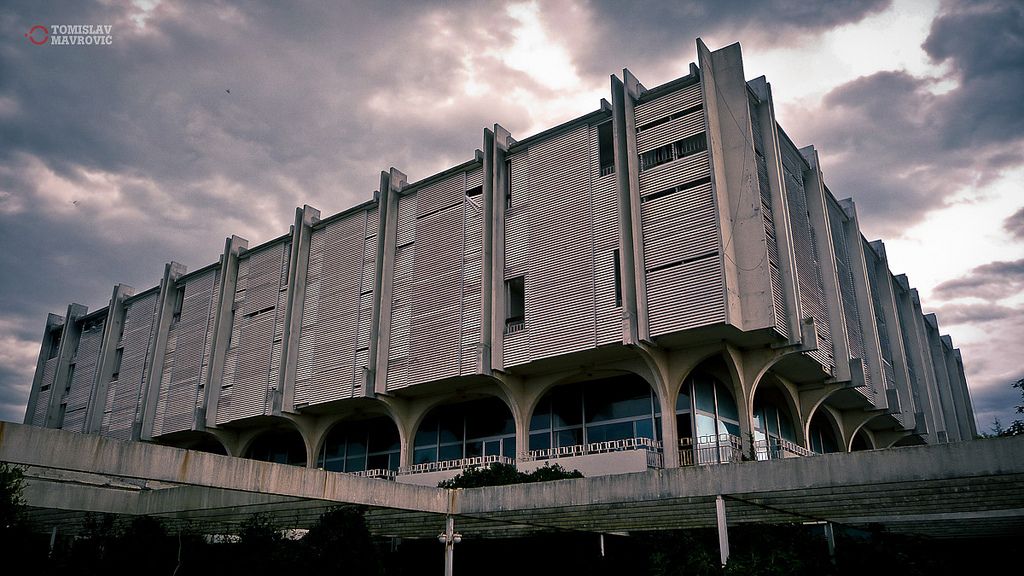
Haludovo has a wildly interesting origin story. It all started at the end of 1960s, when the founder of the Penthouse magazine Bob Guccione visited Krk and, bless his entrepreneurial millionaire mind, decided to turn the already heavenly destination into an over-the-top decadent oasis. He chose the town of Malinska to house the new resort, one that would be composed of luxurious hotels and a grand casino, catering to guests’ every imaginable need. A place like that would attract wealthy foreigners, of course, but for Guccione – at least judging by his own public statements – it wasn’t just about the money. The underlying idea was to create a place that would connect the West with the East; according to the owner, uniting the incompatible concepts of a socialist country and a luxurious destination on the Mediterranean would lead to world peace. Far-reaching? Maybe, but the notion of people of different backgrounds and mentalities coming together to enjoy the same luxury-packed vacation on the Adriatic coast sounds like he was on to something. In Haludovo, all guests were friends, united in pleasure in what Lily Lynch of The Balkanist dubbed as ‘the peace and porn hotel’.
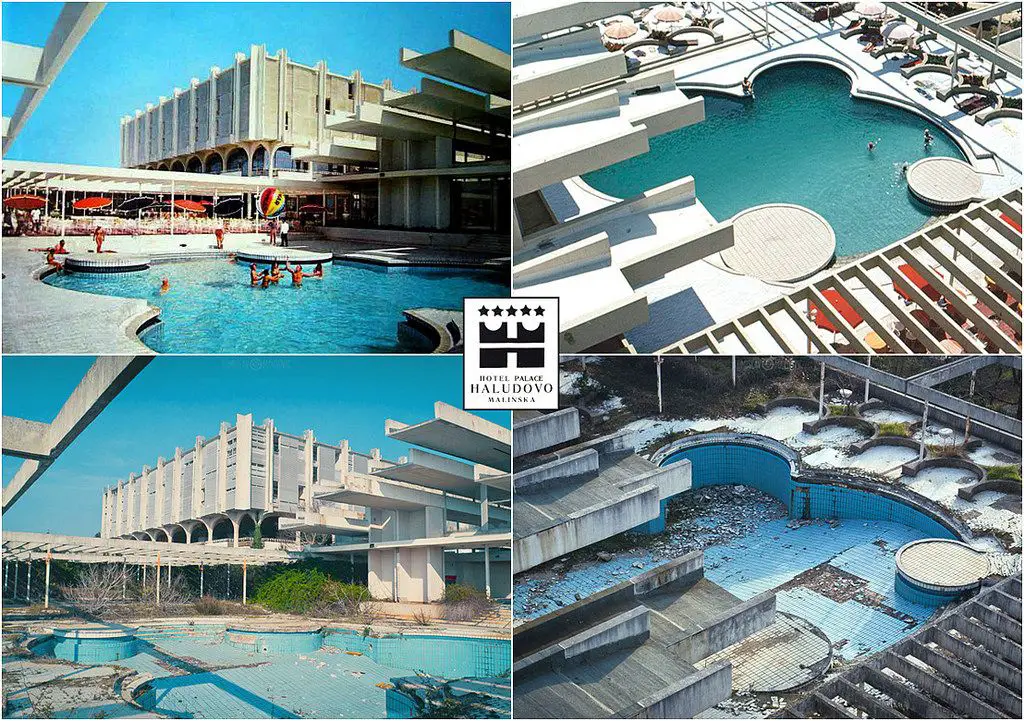
The golden age started in 1972, when Haludovo Palace Hotel and Penthouse Adriatic Club Casino opened and started seeing instant success. Yugoslavia banned the visa requirement in 1967, Rijeka Airport opened in 1970. Guests were flocking to Haludovo like flies to honey. At the time, the tourism industry didn’t yet know the concept of resorts, so Haludovo used to be called a hotel town. The complex was designed by architect Boris Magaš – also known as the father of Poljud stadium in Split – and it could proudly stand alongside the most distinguished pieces of modernist architecture in Europe. Apart from the casino, there was a golf course, a bowling alley, a fishing village, a sports bar. On the other side of the palette of activities, you could find a beauty center with a masseuse ready, pools, beaches, saunas, and a medical center for the odd occasion when the sumptuous living took its toll.
The place was drenched in opulence and taught its guests the art of living: people were feasting on lobsters and caviar in unholy quantities and guzzled champagne like it was water. That’s not even meant as a bad joke: one of the hotel pools allegedly used to be filled with champagne, and while there are no photos to confirm the story, it matches the all-around ambiance of the place. We’ll stick with the legend.
Living each day like it was your last couldn’t have been paired with waiters in formal attire. Who’d want to lounge next to a pool of champagne, listening to whatever was en vogue, and have caviar served to them by a waiter clad in long trousers and a starched white shirt? No, Guccione went the proper provocative way and employed an army of so-called penthouse pets, attractive young women whose work uniforms comprised just a bit more fabric that you would nowadays wear to the beach. They were dressed in strapless corsets and short ruffled skirts; their hair was long and glossy, their faces always smiling. In the following video by the BBC filmed in 1972, their manager explains that most local girls who applied for the job worried the position would entail… er, getting into other certain positions. No, none of that was to take place, they were just expected to be professional, helpful and friendly. There are no ‘confessions of a former penthouse pet’ available online so it’s hard to say from this perspective, but it probably wouldn’t be that presumptuous to guess the relaxed, debauched atmosphere overshadowed the code of conduct.
Such a decadent lifestyle proved hard to maintain, and it didn’t take more than a year before the hotel couldn’t stay afloat anymore. After investing $43 million (the 1970 equivalent of today’s $250 million), Guccione soon went bankrupt. Haludovo kept operating for another twenty years, finally dying down with the start of the Homeland war in 1991. In the early 90s, the hotel was vacant as no foreign guests in their right minds would come to vacation to a war zone, so the place was turned into accommodation facilities for refugees.
And then, after the war, when the chance finally arised to at least partially restore Haludovo to its former glory, came the notorious privatisation. In 1995, most public companies were taken over by the Croatian Privatisation Fund, sliced into stakes and sold off for shamefully low prices. Haludovo was bought by a businessman named Božidar Andročec, who started with expressing interest in buying a quarter of the total shares for €7 million, then paid only 2 million in advance thanks to a quickly improvised deal. He never came forth with the rest of the money. By the time the local authorities intervened, Andročec sold off most of the estate piece by piece, not leaving much to work with, and the Palace Hotel finally closed down in 2002.
The Hoteli Haludovo Malinska company is currently owned by the Armenian-Russian businessman Ara Abramyan, who sold part of his stake to a company called Enmyn Limited, but remains the Chairman of the Supervisory Board. It’s hard to fathom why a successful, business-savvy entrepreneur wouldn’t want to rebuild a resort with so much potential to become lucrative in a very short time. Both the local authorities and Abramyan keep complaining, the municipal council claiming it’s pleading the owner to do something about the place, Abramyan saying he tried on more than one occasion, but keeps running into a bureaucracy wall. As another year goes by without an attempt to rebuild the booming business that could again be taking place in Malinska, the financial loss after its closure reached the incredible total of HRK 1 billion. Professor Zdenko Cerović, president of the Municipal Council Malinska-Dubašnica, added together all the tax that could have been paid, sojourn tax fees, social insurance contributions for the employees and other sources of income for the municipality and the state budget, coming up with the amount above. As it seems, it will keep growing.
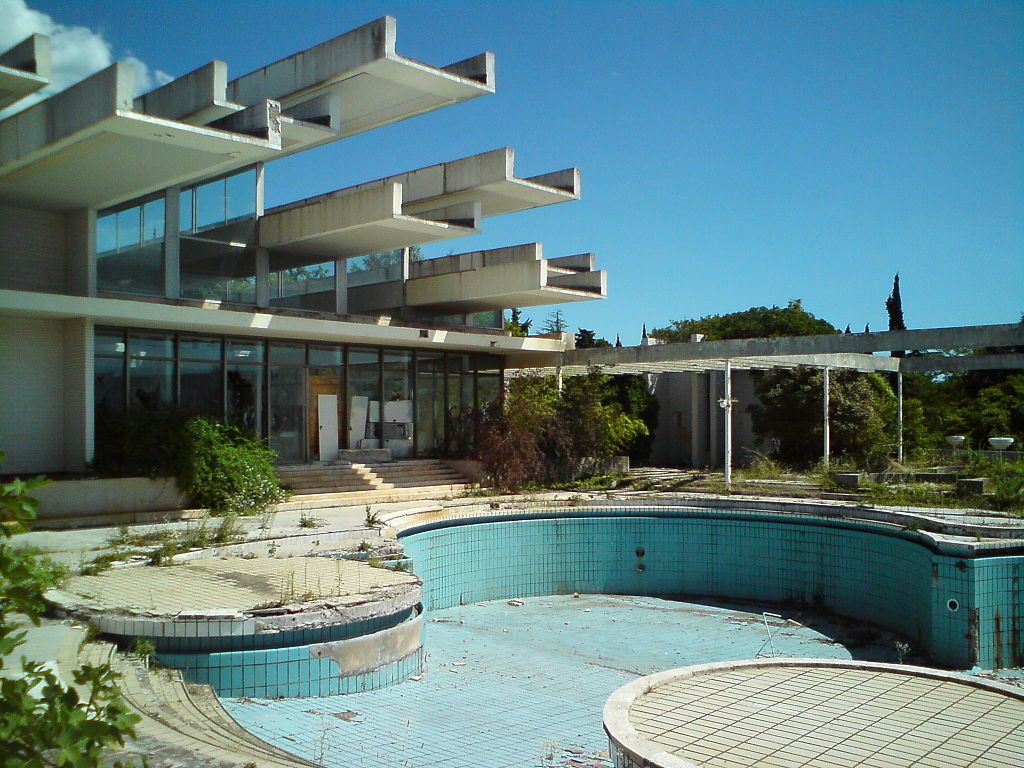
In the meantime, Haludovo remains an eerie ghost town. The complex is still standing, evoking the golden years when it looked like a filming location for a James Bond movie, but instead of crystal chandeliers and poker tables, there are heaps of glass shards and crumbling ceilings everywhere. The pools, still beaming in bright blue, are filled with debris. Walking around the hotel means playing a special sort of Russian roulette: you never know when exactly the floor under you will decide to give in. In accordance with the recent trend of ‘abandoned porn’, the prevailing public penchant for photographs of places in decay, Haludovo has become an uncanny mecca for visitors looking to explore and document the place with photos. It is, in a way, somewhat fascinating, as the buildings keep resisting the test of time, standing as external shells that serve as a reminder of the first truly hedonist destination in Croatia.
Read more about the history of Haludovo on The Balkanist, and more about its current problems in this article by Novi list.
Photo sources: Wikipedia, Flickr

